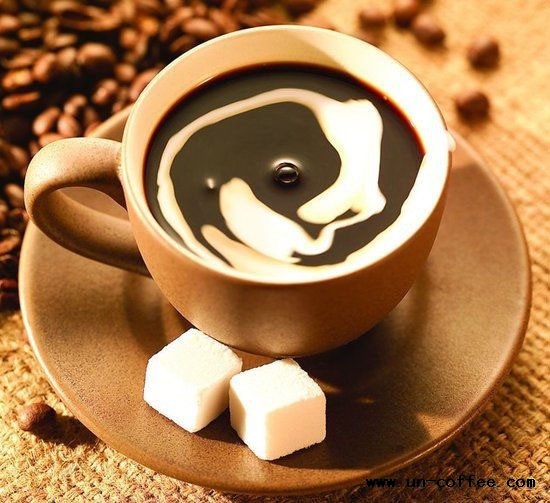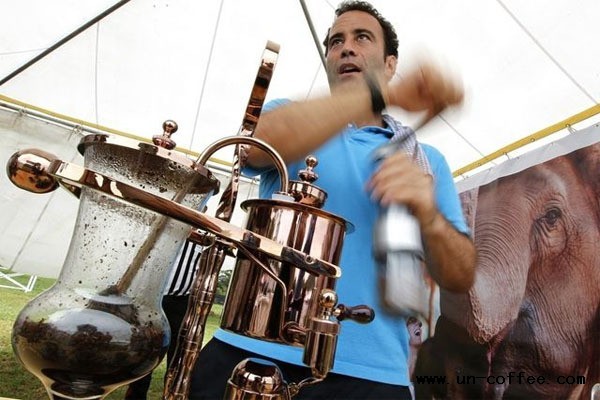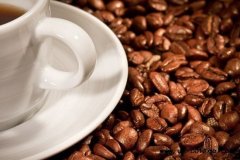Is elephant dung coffee really better than Kopi Luwak?
Many people have heard of Indonesia's "Kopi Luwak". Now, a new one has been added to make coffee from animal droppings. Thailand's Golden Triangle "elephant dung coffee" has become a new favorite of coffee clans. after all, the feces of elephants are still much larger than those of cats.

Elephant dung coffee, as its name implies, is that after the elephant eats the coffee beans, it is excreted through the digestive system. The staff collects the coffee beans from the elephant dung, cleans them and then processes them to become a delicious elephant dung coffee. Dung coffee, which tastes like milk chocolate, nuts, spices and cranberries, costs $1100 a kilogram and is said to be "naturally purified" and has become one of the most expensive coffee in the world. For coffee lovers of different flavors, "black ivory" mixed coffee is just to the taste. Luxury hotel group Anattara launched the high-end coffee in Thailand on Oct. 25 at a price of $25 a cup.

According to the Anattara Hotel in Thailand, the Anattara Hotel has its own large elephant camp in the Chiang Mai Golden Triangle Resort, from which their coffee beans are extracted. Studies have shown that enzymes in elephants destroy coffee protein, because protein is one of the most important factors contributing to coffee bitterness, so less protein means coffee has little bitterness. This coffee is mainly composed of beans digested and excreted by Thai elephants, so it "tastes particularly smooth". After the coffee beans are digested and discharged by elephants, they are collected by elephant watchers and dried naturally. The entire production process was completed at the hotel's Elephant Rescue Center in northern Thailand, where 30 elephants live. I don't know when Chinese coffee lovers will be lucky to have a taste of this non-bitter elephant dung coffee.
Important Notice :
前街咖啡 FrontStreet Coffee has moved to new addredd:
FrontStreet Coffee Address: 315,Donghua East Road,GuangZhou
Tel:020 38364473
- Prev

Health factors in Coffee
A large number of scientific studies have proved that coffee is rich in antioxidants and can prevent a variety of diseases, even cancer, and caffeine is also a powerful tool to prevent asthma and constipation. However, some people are still worried that drinking coffee regularly will damage their health, and do not know that coffee contains many health genes. The International Coffee Organization reports and many studies have shown that drinking coffee regularly can reduce the risk of breast and colorectal cancer.
- Next

Identification of Cat shit Coffee by Chemical Analysis
People who enjoy the most expensive coffee in the world will soon be able to sip coffee without having to worry: researchers have devised a way to tell these people whether the coffee they buy is real or fake.
Related
- Beginners will see the "Coffee pull flower" guide!
- What is the difference between ice blog purified milk and ordinary milk coffee?
- Why is the Philippines the largest producer of crops in Liberia?
- For coffee extraction, should the fine powder be retained?
- How does extracted espresso fill pressed powder? How much strength does it take to press the powder?
- How to make jasmine cold extract coffee? Is the jasmine + latte good?
- Will this little toy really make the coffee taste better? How does Lily Drip affect coffee extraction?
- Will the action of slapping the filter cup also affect coffee extraction?
- What's the difference between powder-to-water ratio and powder-to-liquid ratio?
- What is the Ethiopian local species? What does it have to do with Heirloom native species?

